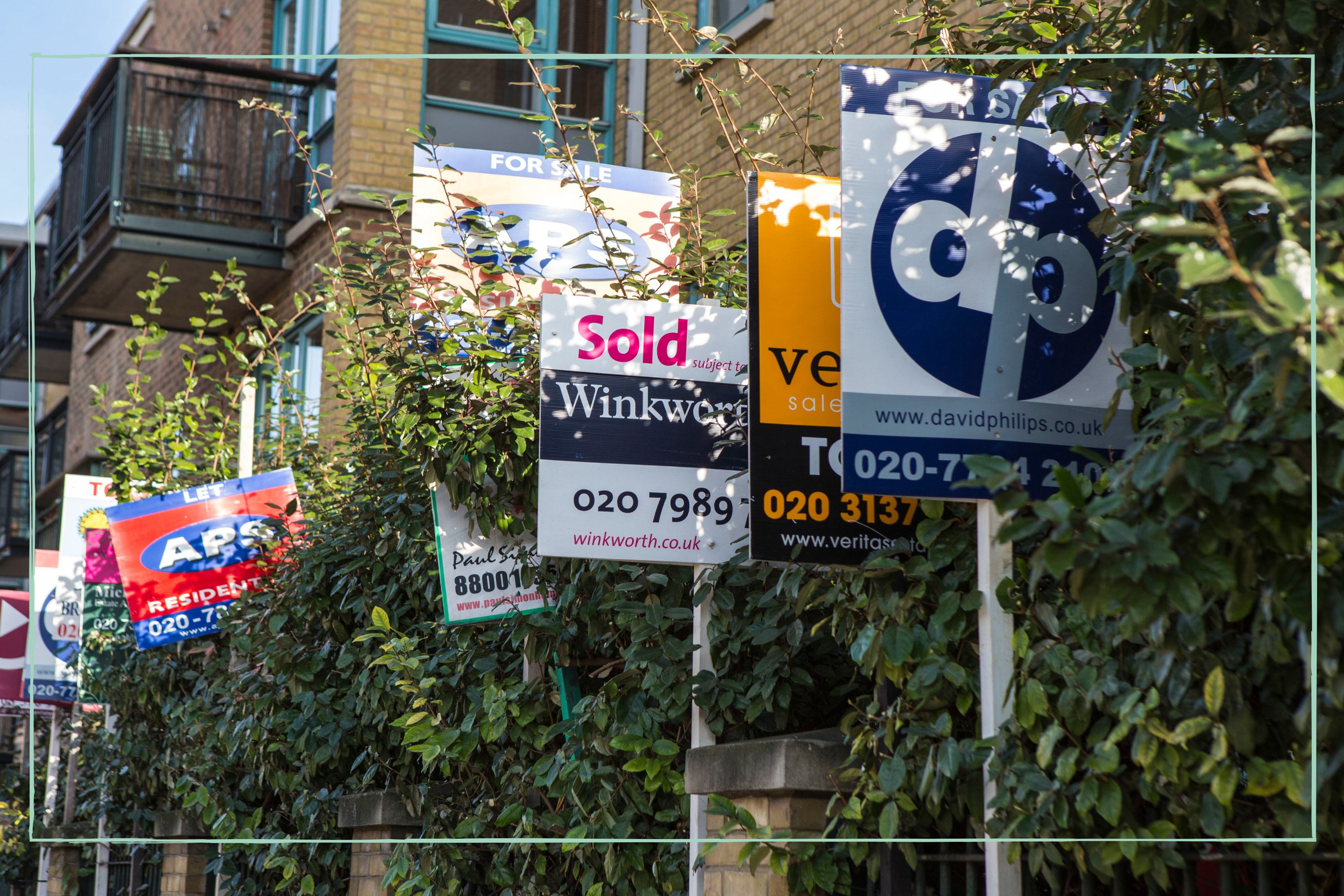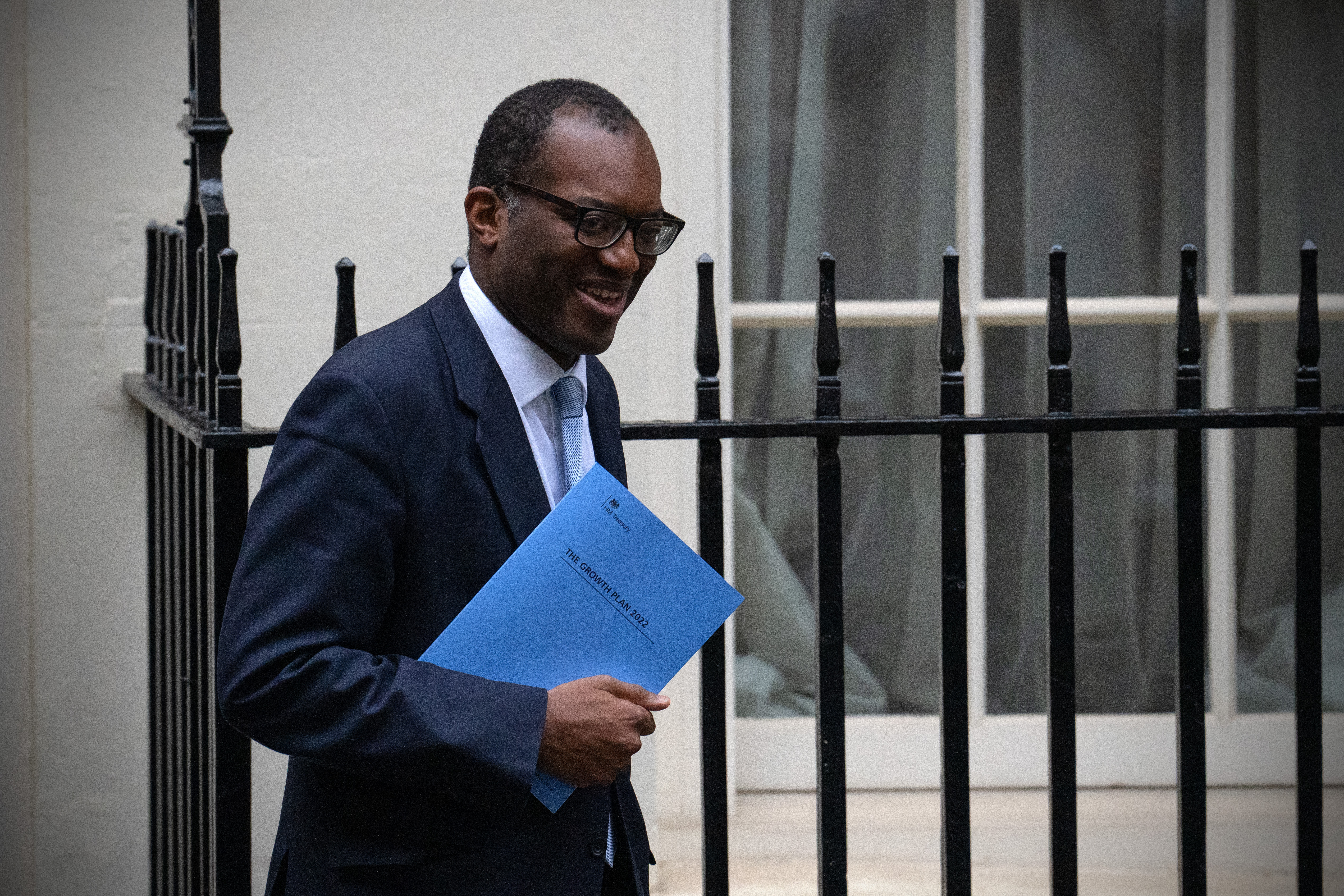What is stamp duty and how will the stamp duty cut affect you?
The chancellor, Kwasi Kwarteng, has confirmed a permanent stamp duty cut - but what is stamp duty and how will the cut affect you?
Charlie Elizabeth Culverhouse

Parenting advice, hot topics, best buys and family finance tips delivered straight to your inbox.
You are now subscribed
Your newsletter sign-up was successful
A stamp duty cut has just been announced, but what is stamp duty, how much do you have to pay and what does the cut mean for you?
The cut was announced by Chancellor Kwasi Kwarteng in his mini-budget as part of a huge package of measures aiming to grow the economy and alleviate the cost-of-living crisis currently affecting the UK. In his mini budget, Kwasi Kwarteng also announced other measures, including a change to Universal Credit rules that will encourage people back into work and a reversal of the National Insurance increase that came into effect in April.
In his statement, Kwasi Kwarteng said: "Home ownership is the most common route for people to own an asset, giving them a stake in the success of our economy and society.
"So to support growth, increase confidence, and help families aspiring to own their own home, I can announce that we are cutting stamp duty."
What is stamp duty?
Stamp duty is a tax that you might have to pay when you buy a new home. Not everyone will pay stamp duty, but you will if the property you are buying is valued over a certain amount.
Stamp duty applies when buying a property in England and Northern Ireland if the value of the property they are buying exceeds a certain amount. A separate system applies if the property is located in Scotland or Wales.
When buying a house, flat or piece of land, your solicitor will advise you on how much stamp duty you need to pay and will handle the payment to HM Revenue & Customs.
Parenting advice, hot topics, best buys and family finance tips delivered straight to your inbox.
How much stamp duty you pay will depend on your circumstances and the value of the property you are looking to by. The higher the value of the property, the more stamp duty you will pay.
Previously, if you were already a homeowner, you wouldn't pay any stamp duty on the first £125,000 of the property's value. On the portion of your home's value between £125,001 and £250,000, you would pay 2% stamp duty.
For example, if the property was £126,000, the first £125,000 would be tax-free, and buyers would then be charged 2% of £1,000 in stamp duty.
Homebuyers were then charged 5% on the portion between £250,001 and £925,000, while the portion from £925,001 to £1.5 million incurs 10% stamp duty charge, and above £1.5 million will incur 12%.
For first-time buyers, the rules were slightly different, and the first £300,000 of the property's value was free from stamp duty. Although if the property a first time buyer was buying was valued at more than £500,000, then even if you were a first time buyer, you would pay stamp duty at the same rate as existing homeowners.
What will the stamp duty cut change?
The threshold at which home movers start paying stamp duty has been permanently doubled from £125,000 to £250,000. For first-time buyers, the threshold has been increased from £300,000 to £425,000.
Also, the limit at which a first-time buyer can qualify for the first-time buyer stamp duty relief has increased from £500,000 to £625,000.
Tim Bannister, Rightmove’s housing expert, noted, "The first-time buyer threshold change means we could see more first-time buyers who can afford it making a jump to a bigger home as their first move.”
For purchases above the £425,000 threshold, first time buyers will pay 5% on the portion from £425,001 to £625,000 but, if the property price is more than £625,000, first time buyers have to pay the same stamp duty rates as home movers.
The change came into effect on 23 September 2022.
Speaking of the change, Chancellor Kwasi Kwarteng said: "The steps we’ve taken today mean 200,000 more people will be taken out of paying stamp duty altogether."

Why has the UK government cut stamp duty?
The cuts to stamp duty are part of Kwarteng’s new growth plan, which aims to deliver on Prime Minister Liz Truss’s promises to slash taxes, boost the country’s economy and quash the cost-of-living crisis.
Kwarteng explains, “It [economic growth] means more jobs, higher pay, and more money to fund public services, like schools and the NHS.
“This will not happen overnight but the tax cuts and reforms I’ve announced today – the biggest package in generations – send a clear signal that growth is our priority. Cuts to stamp duty will get the housing market moving and support first-time buyers to put down roots.”
However, since the raft of tax cuts were announced, the British pound has dropped in value, and it's likely that interest rates will be hiked again to help it recover. In response to the uncertainty around interest rates, more than 900 mortgage products have been withdrawn from sale. Read our guide if you are wondering whether a mortgage offer can be withdrawn once it's on the table.
Sarah is GoodtoKnow’s Money Editor. After Sarah graduated from University of Wales, Aberystwyth, with a degree in English and Creative Writing, she entered the world of publishing in 2007, working as a writer and digital editor on a range of titles including Real Homes, Homebuilding & Renovating, The Money Edit and more. When not writing or editing, Sarah can be found hanging out with her rockstar dog, getting opinionated about a movie or learning British Sign Language.
- Charlie Elizabeth CulverhouseNews writer